#Tornado Wallace
Text
Drop by for some nerd lounge sounds in G minor.
#polypores#concretism#Pye Corner Audio#Tony Rolando#Tornado Wallace#Sense#RX-101#surprise chef#sam prekop#whomadewho#Frank Wiedemann#Warrington-Runcorn New Town Development Plan#Onom Agemo & The Disco Jumpers#Salvatore Mercatante#Wojciech Golczewski
2 notes
·
View notes
Text
Blog post and linked up tracklist [HERE]
www.mixamorphosis.com/2023/11/built-…ow-motion.html
Tracklist
01. Kate Bush - Red Shoes (Appo Re-edit) (Self Released)
02. Gazeebo - Boob Holder (Gazeebo International)
03. DJ Agent 86 - Magic (Lightspeed Recordings)
04. Gary Tom's Empire - Sexy Lady (Lou's Handin' Out Bruises Beatdown) (Tigers On A Leash)
05. Loin Brothers - Garden Of Vargolf (Tornado Wallace Remix) (Future Classic)
06. Drop Out City Rockers - International Track (Drop Out)
07. Hall & Oates - I Can't Go For That ( Unknown Remake)
08. Art Of Tones - The World As I Live It (Room With A View)
09. Bonar Bradberry - Turning Loose (Ron Basejam Remix) (Under The Shade)
10. Honesty - Bleep Me (Room With A View)
11. Tape To Tape - Pure + Easy (Future Disco)
12. Sean Brosnan - Sat Jam (Eddie C Remix) (NeedWant)
13. Matthew Dear - Little People (Black City) (Mark E Remix) (Ghostly International)
14. FETE - The Islands (Maelstrom's Solar Disco Mix) (NeedWant)
15. Massimiliano Pagliara - Keep On Dreaming (Mark E Remix) (NeedWant)
Download available via [HEARTHIS]
#mixamorphosis#dj mix#soundcloud#music#house#edits#deep house#Kate Bush#Appo#Gazeebo#Cymande#Gary Tom's Empire#Loin Brothers#Tornado Wallace#Drop Out City Rockers#Hall & Oates#Art Of Tones#Bonar Bradberry#Ron Basejam#Honesty#Tape To Tape#Sean Brosnan#Matthew Dear#Mark E#FETE#SoundCloud
0 notes
Photo
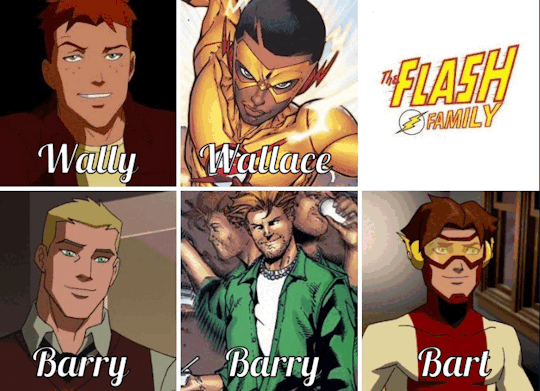
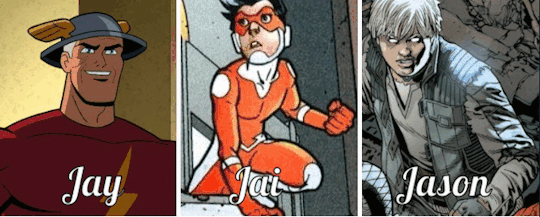


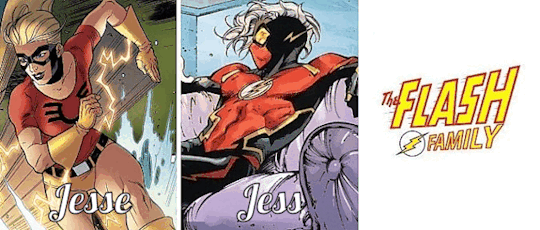
#dc comics#flash family#the flash#flashfam#flash#kid flash#impulse#jesse quick#kid quick#wally west#ace west#wallace west#jess quick#barry allen#bart allen#tornado twins#jay garrick
627 notes
·
View notes
Text
From my Greek Myth Flash Fam AU, here is Iris with her kids:




#this isn't technically finished#but i am finished#so therefore it is posted#greek myth flash au#dc#the flash#kid flash#wally west#iris west#don allen#dawn allen#ace west#wallace west#bart allen#tornado twins#impulse
237 notes
·
View notes
Text
So, I'm gonna share what happened over the weekend with my favorite person. Ik they're finna see this and call me out on it but.. whatever 😋
So, I'm gonna use a nickname for them instead of their real name.
So me and my best friend pinkie were hanging out over the weekend and it was so fucking perfect! We watched "Miraculous, the Tales of Ladybug and CatNoir" (the movie) and "Scott Pilgrim Takes Off" together and it was SO GOOD
(I love Marc and Nathaniel from miraculous and I love Todd, Wallace, and Roxy from spto)
But anyways, we cuddled and hangout throughout the whole day, it was so fun and I felt truly at home. But by the time we finished the movies it was like, 2 or 3 am and we decided to finally go to bed.
We layed down together and began snuggling, and us being us we kept eachother up by being playful and talking together. We were laughing and being silly together and I rolled over onto my side to face away from him pretending to be mad at him (it's something we do to mess with the other- idk how to explain our shenanigans)
But I got the confidence to ask him if he'd hold me and he did, he put his arm under my head and spooned with me, it was SO comfy and it made me very happy. But ofc him being the dork he is decided to mess with me and blew onto my neck and I flinched away. I laughed at him and snuggled closer to him and he put his mouth onto my back and blew into my back.
I asked, "what are you doing?" He replied "nooothing" as i rolled my eyes at him before he did it again "you're making my back warm" that's when I realized he was just blowing into the back of my shirt and it was heating up my back. I shook my head at him while smiling then he blew into my back right between my shoulder blades and it caught me so off gaurd. I rolled over and looked at him as I gave him a playfully "annoyed" look as he said "maybe I should do that to your stomach"
I got so much butterflies in that moment and I just shoved him away playfully. He's the only person who knows I'm ticklish, tbh I didn't even really know I was till I met this dork.
But fast forward a little bit and we're cuddling while he's on his back and I'm holding onto him, I had my hand in his shirt on his stomach bc I was a bit cold and he had his down mine on my back. I decided to scribble on his stomach a little, he's not ticklish barely at all, sometimes he is sometimes he isn't but even when he is he's not nearly as sensitive as I am😒 but he wasn't even trying to stop me and I teased him about that and I felt his hand skitter up my back and I imidialty arched my back away from his hand and smiled at him nervously before he pulled his hand outa my shirt and started pressing around on my back, I can't really defend myself since his arm is behind me so I just try to tickle him back, it didn't work ofc.🙄
But anyways we're laying there talking about stuff, ocasionally messing with eachother and he grabbed one of my arms and dug into my side with the one that was around me, I squirmed around and laughed into him, I was trying not to laugh too loudly because by now it's like 4am. After a bit he let's me breathe and I lay there catching my breath and I hear him say "I wonder if your stomach is ticklish" and I just froze, my brain went bdiejeisndwpnsosjs
He laughed at me then I admitted I didn't know where I was ticklish, hell I didnt even know I was till he tickled me. He spat out "well I'll find out for you" and I just laughed nervously, my stomach doing absolute tornados.
A bit later of more talking and what not I think we may have just been laying there enjoying eachothers company and I decided to try and tickle his underarms, but litterally NO reaction, I tried his sides, stomach, neck, NOTHING, absolutely no reaction and I was just dumbfounded, like huh?? How??
I grabbed his thigh and I hit a certain spot and I smiled thinking I found one and he dug into my armpit and I straightened my posture so quick and squirmed. "Oh? You're ticklish there too?" He said and I just told him to shuddup. I was so embarrassed and then he rolled toward me and started to dig into my side, I laugh and squirm and he hits a certain dip in my side and I squealed and said "not there" faintly between laughs. He stopped and looked at me innocently and I buried my head into the side of him as he was laying back on his back.
Idk, I admit stupid stuff when I'm tired and he was most definatly making me sleepy so I say "you hit a weird spot on my side and it felt weirder than everywhere else" and I like, massaged where it was, and he said "you're not supposed to tell me where" then grabbed me right there again and I imidiatly began to laugh and squirm in his grasp. I tried to grab his hand and he dug into my underarm and it shocked me, idk if he hit a sensitive point or what but wherever he dug his hand tickled like he'll and so again I cried out "no! Not there" faintly and he moved back to my side.
After a while (5am) we decide to go to bed, he blamed me for keeping us up but he was the one tickling that all the time smh🙄 we can never decide on one position but after a while we found the perfect one, he was on his back with his arm out and I layed on his arm facing away from him with our legs intertwined.
The next morning was filled with us randomly poking at eachother, he does this thing where he randomly jabs at my neck and I imidiatly laugh and scrunch up. He's never fully tickled my neck just little pokes and it already drives me crazy so that makes me nervous (/pos) for when he actually will do that to me.
Fast forward a bit and we're laying on the couch, I was across his lap and he was sitting normally on the couch. I had a devious idea to tickle him, the ONLY spot this dude is ticklish is on his feet so I reach down and tickled him but bro squirms so much it was hard to.
After breakfast we go back to my room for a bit and I lay down and ask him for a massage since my back be aching, i tell him it's easier when you sit on the person's back (because for me it is, when I'd lightly scratch his a while back)
And he did, he had his legs proped weirdly to where there was a pocket of space between where he was and where his legs were. He massaged me for a moment and then before I knew it he dug into my sides. I imidiatly tried to shoot my hands down but his legs blocked me from doing so so I thrashed around before he stopped and rolled off beside me, he threw a pillow ontop of my head and walked around the bed.
I told him "I can't see where you are, whatcha doin?"
And I feel him dig at the underneath of my knees one at a time as he worked up jabbing at random parts of my body, I then turned my head to face him and said "I see you" and he just smiled at me innocently.
Fast forward to the sad part when he has to leave, his father is on the way and I ask him to give me affection because I love being dramatic and bratty to him. He layed beside me and I layed on his legs and tried to tickle his feet to get back at him and he moved so damn quick and I almost fell off the bed, I got up and then layed beside him, we had a small tickle fight before he got a text from his parental figure that they were there to pick him up. We hugged and it was honestly one of the best hugs I've had in a while. I love his hugs.
But when he went to leave I stopped him and pointed at my bed "put yo shoes on" i said as he replied with "nah, I never put my shoes on when I leave your house" with a smile on his face so I blocked his path. He jabbed me in the side and shoved me onto my bed and we both walked out the door.
A few hours later he found out about me liking being tickled and now he has my tumblr. So now I'll probably have more stories whenever me and pinkie hangout.
I love you pinkie if youre reading this💕🦋🦋
#tickle community#tword community#tickle scenarios#tword content#tickle thoughts#sfw tickling#tickle content#tickle fluff#tickle stories#tword post#tword blog#sfw twords#tickle fight
22 notes
·
View notes
Text
WEATHER UPDATE FOR THE HOENN REGION: the storm continues and seems to remain focused on SOOTOPOLIS CITY. Champion Wallace has been spotted after being MIA, but it seems as though he refuses to leave the outside of the Cave of Origin.
Evacuation is at 70%. Please continue to evacuate the city. Wind currents have risen and there is suspect for a tornado warning. Other city’s in Hoenn too are preparing for evacuation.
7 notes
·
View notes
Note
🌪️🌪️🌪️🌪️🌪️🌪️🌪️🌪️🌪️🌪️🌪️🌪️
AAAAAAAAAAAAAAAAAAAAAAAAAAAAAAAAAAAAAAAAAH sorry I saw Wallace's bedhead. anyways oooooooo tornado
3 notes
·
View notes
Text

Binaural Space-Revolutions Per Millenium 00:00
Frequency Control Centre-Meramorphic Plane 00:54
Vic Mars-The Fair Arrives 05:15
Jake Mehew-The Black Nation 09:34
Hawksmoor-A Neural Interval 15:41
Maston-Jet Lag 16:40
Gemini Horror-All of the Proud 18:54
Lookout-arcadia 21:46
Work Money Death-Freedom as a Heartfelt Song 26:28
Louis Cole-Let it Happen (old version) 37:01
Slow Haste-Forest Instance 39:25
Hiro Ama-Warp 41:52
Shuggie Otis-Island Letter 44:27
The Beatles-Lucy In The Sky With Diamonds 48:59
Anchorsong-Ceremony 52:18
Bibio-Clay Dots 56:18
PBS'73-Butterfly Inside 59:14
Tornado Wallace-Trance Encounters 1:03:23
Domenique Dumont-Le Soleil Dans Le Monde 1:08:33
Vulfpeck-Earworm 1:12:25
Emerson Kitamura, MMM-Rock Your Baby 1:14:48
Ginger Root-Multiply 1:19:58
Sven Wunder-En Plein Air 1:22:19
Sensorama-Where the Rabbit Sleeps 1:24:50
Bravo Tounky-Chemnitz 1:29:24
Uncle Fido-They Make a Decision 1:33:11
HOME-35 1:34:45
Concretism-Incident on the A1075 1:36:42
E Ruscha V-Sliding Around 1:39:36
Khotin-Computer Break (Late Mix) 1:42:55
Albin-Tacksam 38 1:47:20
The Hardy Tree-Stagdale in the Snow 1:52:56
10.32-Cornelius Drive 1:56:56
Dean Honer-De Da Dumplings 2:01:01
#Binaural Space#Frequency Control Centre#Audionautic Records#Vic Mars#Clay Pipe Music#Jake Mehew#ATA Records#Hawksmoor#Soul Jazz Records#Maston#Gemini Horror#Mystery Circles#Lookout#Work Money Death#Louis Cole#Brainfeeder#Slow Haste#Hiro Ama#PRAH Recordings#Shuggie Otis#Epic#The Beatles#Parlophone#Anchorsong#Tru Thoughts#Bibio#Warp Records#PBS'73#Magic Square Records#Tornado Wallace
3 notes
·
View notes
Text

⊶☽⊷❍⊶☾⊷❍⊶☽⊷⊶☾⊷❍⊶☽⊷❍⊶☾⊷⊶☽⊷❍⊶☾⊷❍⊶☽⊷⊶☾⊷❍⊶☽⊷❍⊶☾⊷
00. CATGIRL I/SPELLCASTER (ORIGINAL FEMALE CHARACTER) - SIDEKICK OF CATWOMAN I & BLACK CANARY II.

⊶☽⊷❍⊶☾⊷❍⊶☽⊷⊶☾⊷❍⊶☽⊷❍⊶☾⊷⊶☽⊷❍⊶☾⊷❍⊶☽⊷⊶☾⊷❍⊶☽⊷❍⊶☾⊷
01. ROBIN I/NIGHTWING (RICHARD JOHN GRAYSON) - SIDEKICK OF BATMAN I & TALON I.

⊶☽⊷❍⊶☾⊷❍⊶☽⊷⊶☾⊷❍⊶☽⊷❍⊶☾⊷⊶☽⊷❍⊶☾⊷❍⊶☽⊷⊶☾⊷❍⊶☽⊷❍⊶☾⊷
02. AQUALAD II/AQUAMAN II (KALDUR'AHM/JACKSON DAVID HYDE) - SIDEKICK OF AQUAMAN I & BLACK MANTA I.

⊶☽⊷❍⊶☾⊷❍⊶☽⊷⊶☾⊷❍⊶☽⊷❍⊶☾⊷⊶☽⊷❍⊶☾⊷❍⊶☽⊷⊶☾⊷❍⊶☽⊷❍⊶☾⊷
03. KID FLASH I/FLASH III (WALLACE RUDOLPH WEST) - SIDEKICK OF THE FLASH II & PROFESSOR ZOOM I.

⊶☽⊷❍⊶☾⊷❍⊶☽⊷⊶☾⊷❍⊶☽⊷❍⊶☾⊷⊶☽⊷❍⊶☾⊷❍⊶☽⊷⊶☾⊷❍⊶☽⊷❍⊶☾⊷
04. SUPERBOY I/STEEL SCION (KON-EL/CONNER JONATHAN KENT) - SIDEKICK OF SUPERMAN I & LEX LUTHOR.

⊶☽⊷❍⊶☾⊷❍⊶☽⊷⊶☾⊷❍⊶☽⊷❍⊶☾⊷⊶☽⊷❍⊶☾⊷❍⊶☽⊷⊶☾⊷❍⊶☽⊷❍⊶☾⊷
05. MISS MARTIAN/CERISE I (M'GANN M'ORZZ/MEGAN MARIE MORSE) - SIDEKICK OF MARTIAN MANHUNTER I & ORCHID.

⊶☽⊷❍⊶☾⊷❍⊶☽⊷⊶☾⊷❍⊶☽⊷❍⊶☾⊷⊶☽⊷❍⊶☾⊷❍⊶☽⊷⊶☾⊷❍⊶☽⊷❍⊶☾⊷
06. WONDER GIRL I/WONDER WOMAN II (ORIGINAL FEMALE CHARACTER) - SIDEKICK OF WONDER WOMAN I & KATANA.

⊶☽⊷❍⊶☾⊷❍⊶☽⊷⊶☾⊷❍⊶☽⊷❍⊶☾⊷⊶☽⊷❍⊶☾⊷❍⊶☽⊷⊶☾⊷❍⊶☽⊷❍⊶☾⊷
07. ARTEMIS I/TIGRESS (LINDA PARK/ARTEMIS LIAN CROCK) - SIDEKICK OF GREEN ARROW & HUNTRESS I.

⊶☽⊷❍⊶☾⊷❍⊶☽⊷⊶☾⊷❍⊶☽⊷❍⊶☾⊷⊶☽⊷❍⊶☾⊷❍⊶☽⊷⊶☾⊷❍⊶☽⊷❍⊶☾⊷
08. ZATANNA/BLACK MAGICIAN II (ZATANNA ZORINA ZATARA) - SIDEKICK OF DOCTOR FATE I & ZATARA.

⊶☽⊷❍⊶☾⊷❍⊶☽⊷⊶☾⊷❍⊶☽⊷❍⊶☾⊷⊶☽⊷❍⊶☾⊷❍⊶☽⊷⊶☾⊷❍⊶☽⊷❍⊶☾⊷
09. ROCKET I/ICON II (RAQUEL SANDRA ERVIN) - SIDEKICK OF ICON I & MADAME LIGHT.

⊶☽⊷❍⊶☾⊷❍⊶☽⊷⊶☾⊷❍⊶☽⊷❍⊶☾⊷⊶☽⊷❍⊶☾⊷❍⊶☽⊷⊶☾⊷❍⊶☽⊷❍⊶☾⊷
10. UNION II/LUMUS (ORIGINAL MALE CHARACTER) - SIDEKICK OF GREEN LANTERN & CAPTAIN ATOM.

⊶☽⊷❍⊶☾⊷❍⊶☽⊷⊶☾⊷❍⊶☽⊷❍⊶☾⊷⊶☽⊷❍⊶☾⊷❍⊶☽⊷⊶☾⊷❍⊶☽⊷❍⊶☾⊷
11. STATIC SHOCK I/BREACH (ORIGINAL MALE CHARACTER) - SIDEKICK OF BLACK LIGHTNING & METAMORPHO.

⊶☽⊷❍⊶☾⊷❍⊶☽⊷⊶☾⊷❍⊶☽⊷❍⊶☾⊷⊶☽⊷❍⊶☾⊷❍⊶☽⊷⊶☾⊷❍⊶☽⊷❍⊶☾⊷
12. CYBORG I/HARDWARE II (CYBERION TECHNIS/VICTOR ANTHONY STONE) - SIDEKICK OF HARDWARE & RED TORNADO.

⊶☽⊷❍⊶☾⊷❍⊶☽⊷⊶☾⊷❍⊶☽⊷❍⊶☾⊷⊶☽⊷❍⊶☾⊷❍⊶☽⊷⊶☾⊷❍⊶☽⊷❍⊶☾⊷
13. BEAST BOY/CHANGELING (CRAIG/GARFIELD MARK LOGAN) - SIDEKICK OF VIXEN & ANIMAL MAN.

⊶☽⊷❍⊶☾⊷❍⊶☽⊷⊶☾⊷❍⊶☽⊷❍⊶☾⊷⊶☽⊷❍⊶☾⊷❍⊶☽⊷⊶☾⊷❍⊶☽⊷❍⊶☾⊷
14. RAVEN/WHITE SORCERESS II (PRIDE/RACHEL ARELLA ROTH) - SIDEKICK OF HELLBLAZER & ARELLA.

⊶☽⊷❍⊶☾⊷❍⊶☽⊷⊶☾⊷❍⊶☽⊷❍⊶☾⊷⊶☽⊷❍⊶☾⊷❍⊶☽⊷⊶☾⊷❍⊶☽⊷❍⊶☾⊷
15. STARFIRE/RED NOVA (KORIAND'R/KORY SCARLET ANDERS) - SIDEKICK OF FIRE GODDESS & FIRESTORM.

⊶☽⊷❍⊶☾⊷❍⊶☽⊷⊶☾⊷❍⊶☽⊷❍⊶☾⊷⊶☽⊷❍⊶☾⊷❍⊶☽⊷⊶☾⊷❍⊶☽⊷❍⊶☾⊷
This is for my "Gods Among Us" story on Wattpad, I'll be pasting the link on the part today.
#artemis crock#conner kent#dick grayson#kaldur'ahm#m'gann m'orzz#wally west#young justice#dc comics#garfield logan#koriand'r#victor stone#rachel roth#raquel ervin#zatanna zatara#original characters#jackson hyde#kon el#megan morse#kory anders#teen titans#wattpad#glampirerockstar
3 notes
·
View notes
Photo
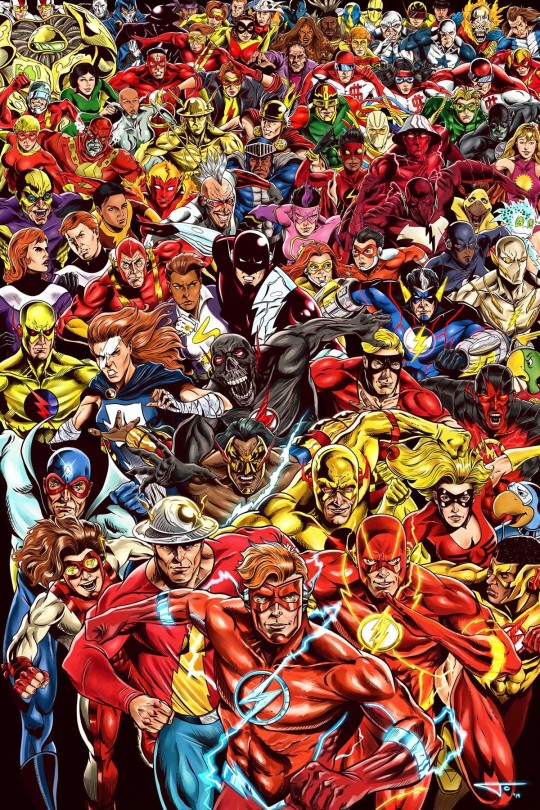
Flash 80th year anniversary artwork by Jose Luis Molestina
#dc comcis#flash#kid flash#impulse#xs#zoom#max mercury#jesse quick#tornado twins#dc comics#black flah#inertia#wallace west#wally west#barry allen#bart allen#jay garrick
536 notes
·
View notes
Photo

- COMPASS -
東京発のレーベル/クリエイティブ集団 HOLE AND HOLLAND と、WOMB レジデントパーティ COMPLEXSTORE の主宰でありsunya プロデューサーが手がける【COMPASS】のローンチパーティが7/14(金)にWOMBにて開催。
ペルーの伝統音楽のリズムと世界のエレクトロニック・ミュージックを追求、新旧のデジタル&アナログミュージックを独自のトロピカル・ベース・サウンドとしてミックスし、世界中から話題を集める Dengue Dengue Dengue をヘッドライナーに迎え、ゆるふわギャングのプロデュースやヘンタイカメラマンとしての活動など東京を拠点にワールドワイドに活躍するAkira Arasawa、自在なグルーブ・コントロールでフロアを瞬く間にピークタイムへ誘うDJ/ProducerのSUNGA、自身のレギュラーパーティー LAIR や来日アーティストのサポートなどダンスフロアの信頼度は国内随一のKABUTO、大阪を拠点に様々な音楽をダンス・グルーヴに纏め上げるDJのQUESTA、自身のパーティModestをベースに主要なフェスやパーティで躍進するSAKUMAが登場。
レジデントとなるHOLE AND HOLLANDからは2023年3月にリリースしたデビューEPがTornado WallaceのHÖRでのセットにてプレイされた新メンバーCourtney Bailey、Mamazu、YO.AN、FUSHIMING、Haruka Katagataといったそれぞれが異なる世界感を表現し幾重にも重なる東京の夜を継承してきたメンバーが一同に集結する。
Date : 7.14.Fri 2023
Venue : WOMB TOKYO
2F
DENGUE DENGUE DENGUE
Akira Arasawa
Mamazu
YO.AN
4F
KABUTO
SAKUMA
Courtney Bailey
1F
SUNGA
QUESTA
FUSHIMING
Haruka Katagata
VJ : de-sheevo
LIGHTING : SAITO
3 notes
·
View notes
Text
Oh my god


Ace and Barry have the same fantasy. Their family safe and sound.
I just.... Barry's mom is serving him and Iris is serving Ace because she's the only mother Ace has ever known. Iris is seated in-between Barry's twin children and Wallace's fantasy has his girlfriend there because she's his lightning rod. Instead of the tornado twins (who he's never met) Ace has his niece and nephew there, safe, fully grown and healthy. Wally's both Barry and Ace's right hand man. And then Barry has Jay, a father figure, and Ace has Barry and Jay because they're both father figures to him.
I just... I want to cry over this because the Flash family cares so much about each other. This is Barry's biggest fantasy. This is Ace's biggest fantasy. I just-
129 notes
·
View notes
Text

Tornado Wallace, Sui Zhen — Today
8 notes
·
View notes
Text
Zajok a nappaliból – Traxelektor 2023. 07.

Előrebocsátom, ha valamelyiknek gondja van a szivárványos gifemmel, lehet jönni átfesteni!
Kovács Ákos előtt csak sejtettük, tanainak kinyilatkoztatása óta pedig tudjuk, hogy „a nőnek a konyhában a helye” (Ákos 3.2). A gondos férj pedig igyekszik mindent megadni, hogy kedvese jól érezze magát a házi tűzhely mellett, és hatékonyan lássa el feladatát. Mint a képen is láthatjuk, Ellen Fraatz-ot is kitöri a boldogság, hogy urától ily remek szagelszívókat kapott a konyhájába, ahol a fúziós, állítható sebességű tűzhelyen készítheti ebédjét berlini otthonában.

Azt, hogy az odaadó hitves erőfeszítéseinek dacára – a haldokló nyugati világvárosban szabadon lófráló sátáni erők (+ állatkerti oroszlánok) hatására – képes meginogni, félrebuzogni a szent női princípium, tökéletesen prezentálja számunka az Ellen Allien néven alkotó művésznő Ash Code nevű germán/talján (német-római) hideghullámos, pogány, vizigót banda (Claudia SchöneNacht, Adriano és Alessandro Belluccio) befolyásolásával megszületett Dance and Kill EP-je.
youtube
A lemez a botrányos nevű BPitch Control label-nél jelent meg, mely Ellen asszony – de ugye mi ellen? – kiadója. Hogy a hölgyemény bizonyosan a sötétséggel paktált le, az is mutatja, hogy valós kora 55 év, míg fizikai valója ettől jelentősen eltérő kort mutat. Mielőbb ördögűzésre javallott!

A Na Nich név az ukrán Oleksandr Pavlenko-t fedi, akiről utolsó emlékem első kiadványa, a 2016-os Time EP, amit Vero-val, a szintén ukrán Vera Logdanidi-vel közösen jegyeztek. A Na Nich valószínűleg на них lehet, ami ukránul annyit tesz: rajtuk. Februárban meglehetősen visszhangtalanul maradt a spanyol Semantica-nál megjelent Super Earth című debutalbuma, viszont itt most a Black Soil EP-ről lesz szó. Az ukrán dj/producer itt valahogy jobban elkapta a fonalat, a négy felvétel egységes deep techno vonalon mozog, mélyen ülő, sötét basszusokkal, minimalizált eszköztárral, dubtechnos terekkel. Ez is az a fajta elektronika, ami képes tompítani a nyári hőség hatását a nappaliban.
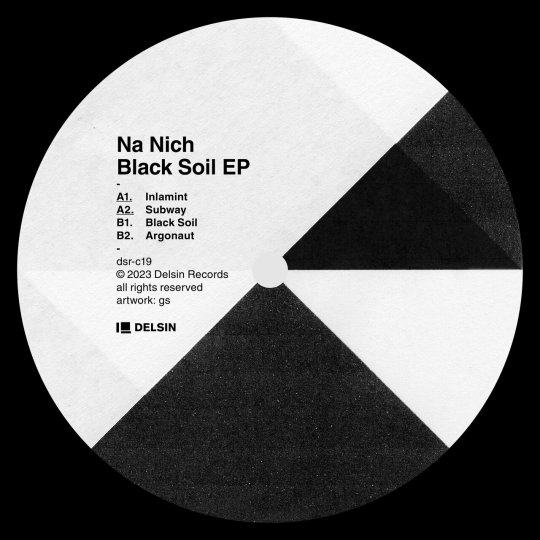
That Who Remembers címmel készített sheffieldi idm-ambient hagyománnyal egybevágó albumot egy svéd páros, Alexander Berg aka Dorisburg és Sebastian Mullaert, kiknek van közös múltjuk, sőt közös pszeudójuk is, Jorum néven. Borongós, hűvös párás zenei anyagról van szó, mely képes tompítani a tomboló, száraz hőséget. A That Who Remembers Donato Dozzi és Neel kiadójánál, a Spazio Disponibile-nél jelent meg.

Határmenti hazánkfiai vásárolni járnak Romániába (az Erdééély, de amúgy meg az se, ui. Partium), én meg IDM-et hallgatni. Khidja már régi kedvencünk korábbról, most ismerjétek meg Eduard Costeat Déváról, a Maros partjáról, Hunyad megyéből! Eduardot DYL néven ismerhetjük, ami névnek remélem nem valami Kőmíves Kelemenes feloldása van Do Your Love címmel. Drum and bass, electro és idm műfajokban is mozog a szerző, már múlt hónapban is szerepelt a Traxelektorban, akkor a Nothing As It Seems albumáról válogattam, de az annyira nem talált be, talán mert erősen ASC-epigonnak tűnt. Az idm / bleep-technoban zakatoló, Fjord címet kapott EP viszont igen. Három felvételt is átemeltem az e-haviba az ötszámos EP-ről, mely a holland Nous'klaer Audio-nál jelent meg.

Nem tudok rájönni, hogy az ausztrál leftfield-dance slágergyáros Lewis Daynek miért jó, hogy az ismert Tornado Wallace nevét hanyagolva, Lew-E néven jelenteti meg – hallhatóan a TW életműbe gond nélkül belesimulni képes – újdonságát. Ennek köszönhetően a Spotify nem ismeri ezt a művésznevet, és a maxi nem is szerepel a kínálatban, itt meghallgathatod.
Olvasva szakírókat, ők meg azt nem tudják eldönteni, hogy milyen címkét ragasszanak rá, sorolom: leftfield house, ambient-house, balearic beat, tribal house, ambient boogie, fusion house pop-wave. Mindegy, a lényeg, hogy a Touched / Teardrop single két felvétele egymás, kreatívan eltérített alternatívái (mint pl a tavalyi TW-féle Dream Corner). Pont annyira dallamosak, hogy a nyári dj-set-ek csúcspontjai legyenek, okos húzás a Lisa Gerrard hangminta is, meg ez a finom billegés az idm hatás megtartásával, nem ragozom, Lewis érti és tudja.
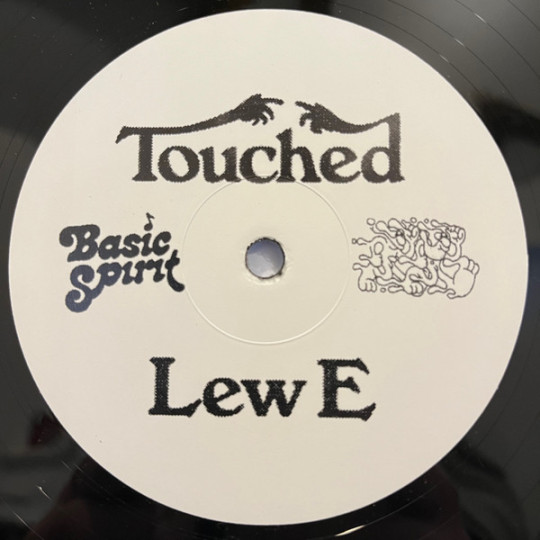
Már gyanakvással figyelem magam, hogy minden számba jut egy olasz páros, ezúttal Christian Duka (Vādin, Amoenus) és Marco Maldarella (Sinestesie) pas de deux-je: a Marmo. Egy évtizede még egy olasz metal banda énekese és gitárosaként ismerkedtek meg, és fokozatosan lépdeltek át az elektroakusztika világába. Óvatos duhajok a srácok, mert az Utternél tavaly már napvilágot látott az Epistolae album, sőt, most is csak limitált kiadványról beszélhetünk, de e-mögött az is lehet, hogy a covid éveiben távkapcsolatban (London-Bologna) íródott, és persze innen jön a címadás is: költői (verses) levelek. Pedig ez egy nagyon erős lemez. Abszolút kiforrott, intelligens elektronika, soft-noise/ambient/downtempo ágyaz meg neki, melyre érkeznek bleep technos, dub, break vonatozások, meghitt kollázsként összeolvadva.

Ezt az albumot elsősorban Mozart barátomnak ajánlom, akiről tudom, nagyon kedveli a vokális experimentalistákat. Sam Shackleton-t pedig sem neki, sem olvasóinknak nem kell bemutatni, viszont ebben a felállásban, eme név alatt eddig nem alkotott. És bár elég tág zenei horizonton mozog Shackleton (+ a Tunes Of Negation), ez most egy újabb ablak világára. A Flesh & The Dream név Shackletont és Heather Lee Murray-t takarja. A hölgy nyugat virginiai származású, de inkább afféle világpolgár, pl Skóciában van kiadója és két évtizedes zenei életművel bír. Ciki, nem ciki, nem ismertem. S nem szántam arra se időt, hogy 18 albumos életművét áttekintsem, pedig nem semmi csaj, Thurston Moore-tól kezdve vagy tizegynéhány zenésszel dolgozott közösen, grafikusként is elismert. Kedveli a pedálos steel gitárt, énekstílusa pedig engem Kate Bush-ra emlékeztet. A Choose Mortality album mindössze 35 percnyi varázslat, és már a lemezborító is afféle preview az álló farkú, harisnyás, késes sátánnal, fejetlen női testtel (Chloe Grove grafikája). Mindvégig aggódtam, hogy Heather Lee végtelen kántálása „gyíkká változtat”, de idővel félelmem „elmúlt”. Hálásak lehetünk, hogy ilyen zeneművek születnek, mert ezek évek múlva is érdekesek, frissek maradnak. Sam barátunk a zenei alapot illetően hozza a shackletoni instrumentumot, törzsi downtempót dobolva, tekergő hangkollázsok kergetőznek, mély erdőbe veszejtve a hallgatót, a társalkotó bozorgány vokálja se segít eligazodni, még az iránytű is együttérzően forog balra-jobbra, körbe-körbe. Az időérzékem meg már rég elhagyott, ez a lemez legalább egy órásnak tűnt, talán mert az album a kanadai Everything Forever Recordings kiadványa.
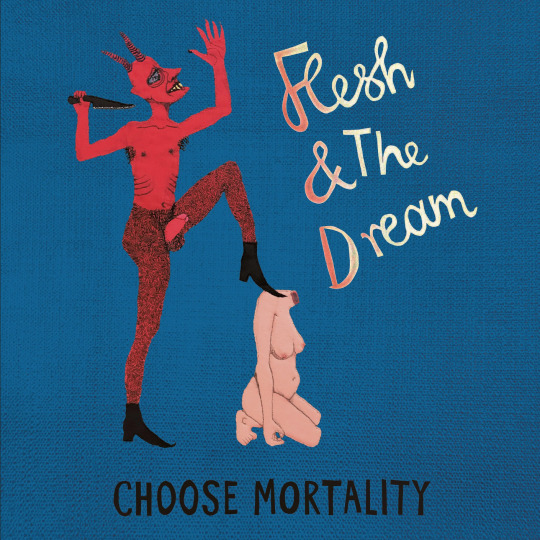
Ha emlékeim nem csalnak, az African Head Charge volt az első, akiket felfedeztem az Adrian Sherwood vezette On-U Sound palettájáról.
youtube
A psychedelic- meg heavy dub cimkével jellemzett bandát Bonjo Iyabinghi Noah ütős alapította 1980-ban, és ez alatt 43 év alatt olyan nevek is megfordultak benne, mint Gaudi, Jah Wobble vagy Skip McDonald (Tackhead). Az A Trip To Bolgatanga az AHC tizenkilencedik albuma, a színvonal töretlen, pörögnek a dobok,dzsembák, hullámzik a dub, szólnak jamaicai kürtök, hiszen a lemezen tizenheten működnek közre.
youtube
A srácok haladnak a korra, a záró felvétel címe Microdosing. Augusztus 5-án Ozorán, a Dragon Nest színpadon lépnek fel Gaudival és Adrian Sherwooddal kiegészülve.

Tíz év alatt tizenöt EP és kislemez kellett ahhoz, hogy Jake Woodhouse elszánja magát, és kiadja debutlemezét. Semmi kapkodás, az erőlködés legkisebb jele nélkül született meg Pris első albuma, a Phantom, melyhez saját label-ét, a 2003 és 2007 között aktív londoni Resint élesztette újra. A techno egyik legkisebb közönséggel rendelkező irányzatában, a minimal/industrial vonalon alkot Pris, gyakorlatilag ez már a leftfield zóna, agyas tánczene. Őszintén mondom, hozzám ez sokkal közelebb áll, mint a többi, jobbára veretős műfajok, és előszeretettel szemlézem, válogatom be a Stroboscopic Artefacts-os, Hospital-os, Semantica-s srácok műveit. A Phantom csúcspontjai a Dark Waves Tower, az Absent Minded, és az Angel.

Carl Finlow electro-s pszeudója, Silicon Scally 2002-ben jelentette meg Mr. Machine albumát. A Cultivated Electronics-nél jelent meg a második eresztés, a Mr Machine Part 2, ami – nagy meglepi – electro album. És az elektrósok Karcsija tényleg mindent megtesz, mert ennél színesebben, egy kezemen meg tudom számolni, hányan képesek ezt a műfajt prezentálni. Nekem a tucatnyi felvétel egy idő után sok. A Traxelektorban viszont tökéletesen állják meg helyüket.

Mikor meghallottam a Totek hatszámosát (ttk. 1), pillanatig azt hittem, Róisín Murphy végre levetkőzte diszkódíva imázst, és valami újba fogott, valami sötétebbe, valami izgalmasabba, mélyebbe. Hamar kiderült, ez nem Róisín, az érdes, bús énekhang tulajdonosa – a Nu-soul területen ismert névnek számító – Allysha Joy, aki Max Dowlinggal párban alkotják a Totek nevű zenei szerelemprojektjüket. Allysha hangja vágva, torzítva, csavarva és loop-olva gördül végig a hatszámos EP-n. Az összhatás egy funkys, soulos bass-elektronika, ugyanis Max végig pakolgatja a legokat a vokál alá, vagyis a vége inkább valami absztrakt trip-hop, hetero super collider light. A melbourne-i páros lemeze a szingapúri Darker Than Wax labelnél jelent meg.

Végezetül ismerjétek meg Sepehr Alimagham-ot, vagyis inkább Sepehr-t, a San Francisco-ba emigrált, jelenleg New Yorkban élő iráni zenészt, dj-t. Nevével már találkozhattatok, a tavaly év albumaként végzett May That War Be Cursed címet viselő Anatolian Weapons remixalbum egyik legmarkánsabb mixét (Black Sea) ő követte el, illetve augusztusban a hónap lemezei között szerepelt a holland Steffi-vel közös Drunk On Psychedeli©a EP-jük. A Diaspora Cocktail EP viszont 100% Sepehr, hipnotikus techno, suttogásokkal, női énektöredékekkel díszítve, és nem mindig, de néha abszolút érezni a keleti hatást is, s ha az ember hallgatott már Mohammad Reza Mortazavi-t, felismeri a perzsa vibe-ot.

Megjelenések:
African Head Charge - A Trip To Bolgatanga [2023, On-U Sound][LP]
Dorisburg & Sebastian Mullaert - That Who Remembers [2023, Spazio Disponibile][LP]
DYL - Fjord [2023, Nous'klaer Audio][EP]
Ellen Allien & Ash Code - Dance and Kill [2023, BPitch Control][S]
Flesh & The Dream - Choose Mortality [2023, Everything Forever][LP]
Lew E - Touched / Teardrop [2023, Basic Spirit][S]
Marmo - Epistolae [2023, Utter][LP]
Morphology - Lakeland Dubs [2023, Kontakt][EP]
Na Nich - Black Soil [2023, Delsin][EP]
Orlando Voorn - Outerworld [2023, TRUST][EP]
Pris - Phantom [2023, Resin][LP]
Sepehr - Diaspora Cocktail [2023, Planet Euphorique][EP]
Silicon Scally - Mr Machine Part 2 [2023, Cultivated Electronics][LP]
Totek – ttk. 1 [2023, Darker Than Wax][LP]

Traxemle
Génkezelt citrom marta, trancehatású hyper-poppal, r&b-vel, edm trappel sanyargat Party Chat EP-jén Samir Alikhanizadeh, azaz Happa. A furcsa mutációkból két felvételt hallhattok a Traxelektorban
youtube
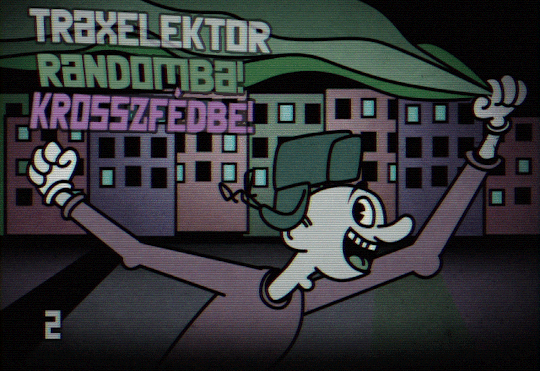
Traxelektor
Traxelektor 2023 07 Spotify playlist - link
(79/87, 7:10/7:35, 91%)

Traxelektor Playlist 2023 07
African Head Charge - A Bad Attitude [A Trip To Bolgatanga, On-U Sound]
African Head Charge - I Chant Too [A Trip To Bolgatanga, On-U Sound]
African Head Charge - Microdosing [A Trip To Bolgatanga, On-U Sound]
African Head Charge - Passing Clouds [A Trip To Bolgatanga, On-U Sound]
African Head Charge - Push Me Pull You [A Trip To Bolgatanga, On-U Sound]
Ben Prophet - From Dusk [From Dusk EP, Radical New Theory]
Carmen Villain - Violet [Music From The Living Monument, Smalltown Supersound]

Cleveland - Pryd BK [Lola Ran, Kalahari Oyster Cult]
Detroits Filthiest - Face Your Fate [100 Percent Authenticity Guaranteed, Casa Voyager]
Detroits Filthiest - Graveyard Shift [100 Percent Authenticity Guaranteed, Casa Voyager]

Dorisburg & Sebastian Mullaert - Bond [That Who Remembers, Spazio Disponibile]
Dorisburg & Sebastian Mullaert - Deep Water Branches [That Who Remembers, Spazio Disponibile]
Dorisburg & Sebastian Mullaert - Hibernation [That Who Remembers, Spazio Disponibile]
Dorisburg & Sebastian Mullaert - Skyward [That Who Remembers, Spazio Disponibile]
DYL - Calm [Fjord, Nous'klaer Audio]
DYL - Fjord [Fjord, Nous'klaer Audio]
DYL - Sinea [Fjord, Nous'klaer Audio]
Ellen Allien & Ash Code - Everything Collapses [Dance and Kill, BPitch Control]
Ellen Allien & Ash Code - Shining On You [Dance and Kill, BPitch Control]

Exium - Cronus [Regressions EP, Void +1]
Exium - Unknown Form [Regressions EP, Void +1]
Flesh & The Dream - Book Of Daniel Part 3 (The Image of Gold and The Blazing)[Choose Mortality, Everything Forever]
Flesh & The Dream - Ecstasy Before The Altar [Choose Mortality, Everything Forever]
Flesh & The Dream - Into Euphoria [Choose Mortality, Everything Forever]
Freak Heat Waves - Altered States [Mondo Tempo, Mood Hut]
Freak Heat Waves - The Time Has Come [Mondo Tempo, Mood Hut]
Gazelle Twin - For Mirko [Then You Run (Original Score), Invada]

Happa - Like Me Like This [Party Chat, Fair Youth]
Happa feat. Lafawndah - Ice Blink Lost [Party Chat, Fair Youth]
Inigo Kennedy - Gloaming [Mercurial Plains, Asymmetric]
Inigo Kennedy - Olden Grit [Mercurial Plains, Asymmetric]
Karenn - Feeling Horizontal [Everything Is Curly, VOAM]
Karenn - When Lutes Were a Thing [Everything Is Curly, VOAM]

Katatonic Silentio - To [Mantis 11, Delsin]
Kike Pravda - Dark Flares [High Voltage, Mord]
Kike Pravda - High Voltage [High Voltage, Mord]
Kike Pravda - Singularity [High Voltage, Mord]

Klara Lewis & Nik Colk Void - Pop [Full-On, Alter]
Lew E - Teardrop [Touched / Teardrop, Basic Spirit]
Lew E - Touched [Touched / Teardrop, Basic Spirit]

Marmo - Carezza [Epistolae, Utter]
Marmo - Fenomenologia Del Giudizio [Epistolae, Utter]
Marmo - Liturgia Lisergica [Epistolae, Utter]
Marmo - Sacrificio Quotidiano [Epistolae, Utter]
Marmo - Semiotica [Epistolae, Utter]
Marmo - Traveling Without Moving [Epistolae, Utter]
Morphology - Lakeland [Lakeland Dubs, Kontakt]
Morphology - Understory [Lakeland Dubs, Kontakt]

Na Nich - Argonaut [Black Soil, Delsin]
Na Nich - Inlamint [Black Soil, Delsin]
Na Nich - Subway [Black Soil, Delsin]
Orlando Voorn - Outerworld [Outerworld, TRUST]
Orlando Voorn - Shockwave [Outerworld, TRUST]
Piezo - Cyclic Wavez [Cyclic Wavez EP, Nervous Horizon]

Placid One - CX Pallas [Warm Embracing, Altered Sense]
Pleasure Model - Kontrollerville [Multiplicative Gain, 100% Silk]
Pleasure Model - Tellem Alert [Multiplicative Gain, 100% Silk]

Pris - Absent Minded [Phantom, Resin]
Pris - Angel [Phantom, Resin]
Pris - Astro [Phantom, Resin]
Pris - Dark Waves Tower [Phantom, Resin]
Pris - Marble Eyes [Phantom, Resin]
PRZ - Pulsar [Synthetic Man, Clone West Coast Series]
PRZ - Synthetic Man [Synthetic Man, Clone West Coast Series]
RVSHES - DSR_MTS VI [Mantis 12, Delsin]

Scuba - EveryBCT [Hardcore Heaven, Hotflush]
Scuba - Nowot [Hardcore Heaven, Hotflush]
Sepehr - Abandoned Ecstasy (XTC Mix)[Diaspora Cocktail, Planet Euphorique]
Sepehr - Diaspora Cocktail (Freak Beat Mix)[Diaspora Cocktail, Planet Euphorique]
Sepehr - Liquid Cobalt[Diaspora Cocktail, Planet Euphorique]
Silicon Scally - Cryptotronix [Mr Machine Part 2, Cultivated Electronics]
Silicon Scally - Diffraction Field [Mr Machine Part 2, Cultivated Electronics]
Silicon Scally - Digicell [Mr Machine Part 2, Cultivated Electronics]
Silicon Scally - Wave Dynamics [Mr Machine Part 2, Cultivated Electronics]

Tensal - Revenge (Anthony Linell Remix)[Forgiveness of Blood Remixes, KR3]
Tensal - Vanadium (Alessandro Adriani Remix)[Forgiveness of Blood Remixes, KR3]
Terence Fixmer - State of Disorder [State of Disorder, Planete Rouge]
Terence Fixmer - Turbulence [State of Disorder, Planete Rouge]
The Black Dog - 4PO [The Reproduce EP, Dust Science]
The Black Dog - Star Dancer [The Reproduce EP, Dust Science]
Totek - Arche [ttk. 1, Darker Than Wax]
Totek - Closer [ttk. 1, Darker Than Wax]
Totek - Hard Step [ttk. 1, Darker Than Wax]
Totek - Touchh [ttk. 1, Darker Than Wax]

Yaleesa Hall - Fourth Cullen [Cullen, Will & Ink]
Zeta Reticula - Ionization [Isolate, Science Cult]
Zeta Reticula - Note Attack [Isolate, Science Cult]

4 notes
·
View notes
Text
I can list a hundred things David Foster Wallace should have written before he wrote a book about tax accountants. One, and the most obvious, is a novel about Irish dancers on tour with a Michael Flatley figure whose influence grows more sinister over time. Pounds of verbal oil will be poured into his perm; his bulge will almost rupture his trousers. His backstory – but surely you can picture it. One dancer is addicted to weed, another feels like he doesn’t belong, and eventually Michael Flatley’s head, which has been seeming to grow on a parallel track with his sinister influence, gets microwaved successfully against all known laws of physics, and we have a moment where we hear all his thoughts as Death clogs his failing body through space and time. There. Done. The Pale King never needed to happen, nor all the rest of it.
Though there is one thing we wouldn’t want to lose: a character named Mr Bussy.
That’s how I felt before I read it, anyway. Criticism of the book at the time, less uneasy in its knowledge of Wallace (in fact performed at the peak of his sainthood), mostly centred on one question: Why did he choose to do it? As in, why would you choose to swim the Channel? Why would you lie on a bed of narrative nails? Why would you slip into the bodies of the men in grey flannel, the opaque fathers, the personified footnotes, the data mystics, the codes and by-laws among men? (We’ll get to the women later. If the male IRS worker’s backstory is that he carried a briefcase as an eight-year-old and had hyperhidrosis, the female IRS worker’s backstory is that she was diddled.)
Tax agents. Oh, I feared them. As far back as I can remember, my mother was always being stretched on the rack of something she called ‘an extension’. She saved every receipt she was ever given in a shoebox. Despite her efforts, we were always being audited for priest reasons, and every other year or so I found myself parked in a suffocating van, for hours on end, outside offices just like these. What was happening, was she being interrogated under hot lights? I had a sense of dark-suited agents walking among us, eyes on our daily business – on me, in the minivan, as I waited for my mother. I was a fearful child, as he was. I was also raised in Tornado Alley, with noticeably different results.
The Pale King was found by Wallace’s widow, Karen Green, and his agent, Bonnie Nadell: a chaos of paper, floppy disks, notebooks, three-ring-binders; words, some typed, some in his tiny handwriting, all adding up to hundreds of pages. There was no direction for its organisation, so they enlisted the help of Michael Pietsch, who ‘had the enormous honour of working with David as his editor on Infinite Jest, and had seen the worlds he’d conjured out of a tennis academy and a rehab centre’. In other words, a saint of 20 lb bond paper, who must have worked in a state of enthralled and transcendent boredom, of the type that Wallace had made it his mission to describe.
Pietsch assures us that had Wallace been in charge of the final product it would not have contained so many instances of the phrase ‘titty-pinching’. Judging by Infinite Jest, it would have contained more. He also offers the wistful hope that it would have contained fewer Doberman hand puppets. Dream on, I fear. But here’s the thing about The Pale King: it was going to be good. It was on its way to being good – in a Mister Squishee truck, on a rural highway, with a long fertile streak out the window. Wallace might have ruined it with his visions of what he called its ‘tornadic structure’. He might have ruined it with its women: the Toni Ware chapter in particular sounds like Cormac McCarthy breaking his hymen on horseback. (RIP.) He might have ruined it with his doubt, which caused him to turn somersaults like a cracked-out fairground child. (‘Is it showing off if you hate it?’ Hal Incandenza asks in Infinite Jest.) But it is there. The version we have stays largely in the personalities, and chapter after chapter, it is the impersonation of someone boring that allows him to rest.
It begins with the flannel plains of Illinois. The year is 1985, and the place is the IRS Regional Examination Centre in Peoria. Something to Do with Paying Attention first appeared as a long monologue in The Pale King – it comes about a quarter of the way through the book as Pietsch placed it – though Wallace had toyed with the idea of publishing it as a stand-alone novella. It is enthralling. ‘From what I understand,’ Chris Fogle says, at the beginning of his video interview, ‘I’m supposed to explain how I arrived at this career. Where I came from, so to speak, and what the Service means to me.’ He is trapped in the present, he disclaims. The work has had that effect on his mind, so that, ‘If I drank, for instance, some Tang, it wouldn’t remind me of anything – I’d just taste the Tang.’ Then he begins, beginning with his father, beginning with his ‘fairly long hair’, to remember.
‘Anyhow, all this was in the Chicagoland area in the 1970s, a period that now seems as abstract and unfocused as I was myself.’ He remembers his peace-sign pendant and his parents’ divorce and ‘everyone despising Gerald Ford, not so much for pardoning Nixon but for constantly falling down’. He remembers smoking pot with his mother and her new partner, Joyce, and watching them cry and stroke each other’s hair as they talked about their childhoods. He remembers thinking his father was one of a generation of men who were born to fill out a suit – but he himself was a ‘wastoid’, a nihilist; cycling in and out of three different colleges, marking time by the rotating neon foot he could see through his dorm-room window; feeling that he owned himself only in a pharmaceutical state he called ‘Obetrolling’.
My affinity for Obetrol had to do with self-awareness, which I used to privately call ‘doubling’. It’s hard to explain. I’m still not entirely sure what I meant by this, nor why it seemed so profound and cool to not only be in a room but be totally aware that I was in the room, seated in a certain easy chair in a certain position listening to a certain specific track of an album whose cover was a certain specific combination of colours and designs – being in a state of heightened enough awareness to be able to consciously say to myself, ‘I am in this room right now.’
I knew exactly what he was talking about, because I had once taken one of my brother’s Adderall and then gone to see Django Unchained. (Obetrol was later reformulated as Adderall. It was Andy Warhol’s drug of choice, and it literally does make you want to sell a soup label to someone for a million dollars.)
What makes a wastoid change his life? What could effect such a decision? In Something to Do with Paying Attention, it is a Jesuit who persuades Fogle to it, though it goes without saying that the Jesuit has long since been persuaded to something else. One day in late December 1977, just weeks before his father will be killed in a public transit accident, Fogle stumbles into Advance Tax by mistake and finds himself ‘particularly,uniquely addressed’. He remembers that the Jesuit was wearing a slightly racy watch (as in my experience they will). He lets slip the insider terminology that reveals his secret: he was once a probable ‘IRS wiggler’, who lived in the secular world. ‘Gentlemen, you are called to account,’ he tells them, and Fogle goes out, gets a haircut, and buys a grey wool suit. As in Infinite Jest, the death of Fogle’s father is technically impossible. It is a thing that cannot happen. But to step into your father’s shoes and become him requires just such an event; it requires a conversion experience.
The thing about the ‘I remember’ model is it’s inexhaustible, it can just go on. Recollection engenders recollection. Test it. Remember your local news anchors from when you were a child (mine were Rob Braun and Kit Andrews), describe their hair and cheekbones and your sense that they would never die, and go from there. Sing the jingle for the local pizza place. He is referred to as ‘“Irrelevant” Chris Fogle’ by the character known as David Wallace, who also says: ‘Given the way the human mind works, it does tend to be small, sensuously specific details that get remembered over time – and unlike some so-called memoirists, I refuse to pretend that the mind works any other way than it really does.’
The cast that surrounds Fogle is large, cartoonish and alive. All of them carry, as if in briefcases, their own small, sensuously specific details. There is the hyperhidrotic David Cusk, a kind of incarnation of the author’s own sweatband. There is the boy contortionist whose project is to put his lips to every part of himself – who ‘did not yet know how, but he believed, as he approached pubescence, that his head would be his. He would find a way to access all of himself. He possessed nothing that anyone could ever call doubt, inside.’ There is Merrill Errol Lehrl; I’ll allow it. There is the data mystic, the fact psychic who ‘tastes a Hostess cupcake. Knows where it was made; knows who ran the machine that sprayed a light coating of chocolate frosting on top; knows that person’s weight, shoe size, bowling average, American Legion career batting average; he knows the dimensions of the room that person is in right now. Overwhelming.’ There is Shane Drinion, the asexual tax monk who might actually be happy, who sits across the table from the ultra-fox Meredith Rand and levitates listening to her talk about her time on a psychiatric ward and her prettiness. And there are multiple David Wallaces. One David Wallace, wet behind the ears, with so notable a skin condition that he has catalogued the different kinds of attention people pay to it, might arrive at the office one morning and be taken for another.
As I read, I thought Wallace must have been taken by something very simple, the smallest sensual fact: that as an IRS worker you are issued a new social security number, in essence a new identity, a chance to start over. The old number, the old life, ‘simply disappeared, from an identification standpoint’. A whole novel could take flesh from that fact, one about the idea of bureaucratic identity as opposed to individual identity: memories, mothers, sideburn phases, the way we see ourselves. That we are, at our core, a person; in the bed of our family, a name; and out in the world, a number. Of course, as so often with Wallace, on actual investigation this turns out not to be true. The fact withdraws itself, and only the epiphany remains.
Why did he turn to it? Because it was impossible, probably – just as Infinite Jest had been to him fifteen years earlier. And when he took on the impossible book, something sometimes happened to him: a run, a state of flow, a pure streak. As those who are prone to them know, these simulate real living, which we are somehow barred from otherwise. ‘I’m deep into something long,’ he wrote to Pietsch in 2006, ‘and it’s hard for me to get back into it when I’m pulled away.’ He developed a habit of not leaving the house, in case he might write that day. ‘Once when I pressed him,’ Pietsch said, ‘he described working on the new novel as like wrestling sheets of balsa wood in a high wind.’ As he writes in one of his most typically tall-tale essays, ‘Derivative Sport in Tornado Alley’, he was, as a ‘near-great’ junior tennis player, at his very best in bad conditions. In fiction, he creates them; he serves himself sleet, hail, sun in the eye, all for the chance to play through them. Weather, from the beginning, was his best and most beautiful dimension; he trusted in The Pale King’s tornadic structure to finally lift him up. ‘Derivative Sport’ ends famously with a day on the court, hitting balls with Gil Antitoi. ‘A kind of fugue-state opens up inside you where your concentration telescopes toward a still point and you lose awareness of your limbs and the soft shush of your shoe’s slide.’ His life in tennis was spent chasing this moment, he tells us; he has been talking about fiction, too, this whole time. ‘We were young, we didn’t know when to stop. Maybe I was mad at my body and wanted to hurt it, wear it down.’ This funnel of concentration, this tunnel of play between people, rips somehow into the world and becomes force.
Ihave a tender partiality for the work in progress, and have always been electrified by the unfinished novel. My first was a copy of Juneteenth, which I insisted on buying instead of Invisible Man. Invisible Man was finished. The guy was invisible. Next. But Juneteenth held the secret, maybe. It was unbound. It bulged in the hand like a sheaf of papers, and Ellison was still alive in it, the process was ongoing.
David Foster Wallace – man, that name looked great. That’s part of it, right? – David Foster Wallace, colloquially known as DFW, died by suicide in 2008, after years of suffering, sobriety, intractable depression, Nardil and its discontinuation, shock treatment as a last resort; and throughout it all hand-to-the-plough hard work. The Pale King was released in 2011, was a finalist for the 2012 Pulitzer Prize. The lack of an award that year seemed to reproach the others on the list (Karen Russell and Denis Johnson) for still being alive. He didn’t get to finish.
In the ‘Notes and Asides’ at the end of The Pale King, Wallace is alive too; you can hear his voice tilting up with the question marks:
‘Film interview’ a sham? Point is to extract from Chris Fogle the formula of numbers that permits total concentration? Point is he can’t remember – he wasn’t paying attention when he happened to read the series of documents that added up to the string of numbers that, when held in serial in his head, allows him to maintain interest and concentration at will? Has to be sort of tricked into it? Numbers have downside of incredible headache.
His monologue unspools as my mother’s might have, under the hypnosis of hot lights. If ‘“Irrelevant” Chris Fogle’ tells us everything, everything he thinks and feels and remembers, won’t we eventually arrive at the string of numbers that does not bind but sets us free?
I was sceptical of Sarah McNally’s claim, in her brief and somewhat subdued introduction to Something to Do with Paying Attention, that it is ‘not just a complete story, but the best complete example we have of Wallace’s late style’, but that’s exactly what I found it to be. It is the first time his nostalgia sounded adult to me, looking back at childhood not just as the site of personal formation but as the primal experience of bureaucracy: queues, signs, your own name on the line, textures of waiting-room chairs. Waiting to become what, a person. It was not his childhood, perhaps, but it had some of the same surfaces, colours, engineered fabrics. Time to care about JFK again, or still. A kind of cinematic obsession with the sound of joints sucked in and breath held and the textural impact of gold-orange-green couches, invariably described in his work as ‘nubbly’. Posters and dropped needles and a vacancy in teenage faces, and finally he was far enough away.
Wallace’s idea of publishing it as a stand-alone text must have been born of desperation: he could not get the thing done. ‘But how to get this idea sold?’ he asks in the notes. ‘Is this a plausible plotline?’ He had the who, what, when, where; but the same thing that led these characters to the IRS left them motionless at their desks, what were they there to do, and where could they go from here? ‘Supervisors at the IRS’s regional complex in Lake James township are trying to determine why no one noticed that one of their employees had been sitting dead at his desk for four days before anyone asked if he was feeling all right.’
Perhaps Wallace was writing toward paradise, where the forms are also motionless. ‘Pay close attention to the most tedious thing you can find (tax returns, televised golf), and, in waves, a boredom like you’ve never known will wash over you and just about kill you. Ride these out, and it’s like stepping from black and white into colour. Like water after days in the desert. Constant bliss in every atom.’ He did not feel that, maybe, but he could make a man who did.
‘I don’t remember what I did with all my real attention, what-all it was going towards,’ Fogle says. It is always underlined in Wallace’s work, it is believed in without qualification or irony: your real attention. What is it, as a substance? An ichor that flows; a kind of beam that illuminates? Is it corrupted to look on the wrong thing? No, it is not corrupted. I would recommend that you read The Pale King in its entirety – it says something about how novels work, and how they don’t work, and how, if you are avoiding life, it is easier sometimes to exist in the very long middle of them. Something to Do with Paying Attention has the spirit of his best non-fiction, that of the set-apart morning, with a ray shining on the page. It both demonstrates his greatest gift and represents the desire to have this part of him set alone from the rest.
Experiment: use my brain damage to travel back to a time when we did not know this about him.
The memory wipe I experienced after Covid in 2020 extended backwards to 2018. Many who had died became alive again. David Bowie went on again for quite a while, a star painted over his eye. Certain things were very clear: people, places. But many things I had read online were just curiously gone. Betty White was either dead or a landlord. It all merged into a single uneasy datum, like a button under a desk or a composite face.
When I thought of Wallace, I saw two black and white author photos set side by side: one in a trench coat, another turned in profile. I remembered the phrase ‘moving car’, but only because it was something I had written. As for the rest, it was as if it had never happened, or had gone back into that original inch of secrecy between people. All this to say that when I picked up Something to Do with Paying Attention almost at random one morning, I could not have told you with any certainty what it was that he had done.
I did not think, here is the opportunity for a fresh encounter, a chance to read him as he was read back then. I simply picked it up and went on with it, absorbed. Poured out that peculiar quantum, my readerly goodwill. I thought, what is it exactly? He makes people feel they are in real possession of the word ‘volute’, that their vast untapped icebergs of vocabulary and perceptual detritus are readily available to them. His entire personality is present in the word ‘supposedly’ – it is actually frightening. How can the book be separate from the person. What are we reading when we are reading a book. What are we learning when we discover that someone was not good.
We knew he was not benevolent exactly (well, some of us knew) but there was the sense that he was suffering on the same side as us. Why we believed we were reading him for moral instruction in the first place I have no idea, but it did prefigure the primary way we construct morality now: to be paying attention. To everything. That means you. To read him freshly in a time of failure: his, to be loved; mine, to hold all the facts, to have paid enough attention to sit for the test.
As for whether we were foolish to love him, to emulate him, to rise to his challenge – there is an odd scene in a Joy Williams story called ‘The Blue Men’. (Do NOT read Joy Williams at the same time as DFW. It will give you a very bad opinion of him.) Two boys, maybe brothers, are playing catch with a tennis ball on a pier. ‘The younger one sidled back and forth close to the pier’s edge, catching in both hands the high, lobbed throws the other boy threw.’ One of Williams’s strange, terminal teenagers looks on. ‘That’s nice, isn’t it?’ Edith said. ‘That little kid is so trusting it’s kind of holy, but if his trust were misplaced it would really be holy.’ Trust in what, she does not specify. His brother, the ball, the boards, his body, the water, the world? ‘Like, you know, if he fell in,’ Edith said.
Infinite Jest – man, I don’t know. Perhaps I would have enjoyed it more had the rhetorical move not so often been ‘and then this little kid had a claw.’ It’s like watching someone undergo the latest possible puberty. It genuinely reads like he has not had sex. You feel not only that he shouldn’t be allowed to take drugs, but that he shouldn’t be allowed to drink Diet Pepsi. The highlights remain highlights: the weed addict Ken Erdedy pacing back and forth while reciting ‘where was the woman who said she’d come,’ the game of Eschaton, the passages where Mario is almost the protagonist, the beatified ex-thug Don Gately being slowly swept out to sea over the course of a hundred pages. Every so often Wallace offers you a set piece that’s as fully articulated as a Body Worlds exhibit – laminated muscles pinwheeling through the air, beads of plasticine sweat flying – or pauses the action to deliver a weather bulletin that approaches the sublime. The rest is Don DeLillo played at chipmunk speed. You feel it in your hands: too heavy and too light, too much and not enough. In the end, it is a book about the infiltration of our attention that was also at the mercy of itself, helpless not to watch itself, hopelessly entertained.
What were the noughties? A time when everyone went to see the Blue Man Group for a while. Men read David Foster Wallace. Men also put hot sauce on their balls. Tom Bissell’s intro to the 20th-anniversary edition of Infinite Jest, which is good both on its own merits and on the question of why someone would love the book, makes the pertinent disclosure that he read it as a 22-year-old in Uzbekistan. ‘As I read Infinite Jest in the dark early mornings before my Uzbek language class, I could hear my host mother talking to the chickens in the barn on the other side of my bedroom wall as she flung scatters of feed before them.’ He also acknowledges that ‘for the first few hundred pages of my initial reading, I will confess that I greatly disliked Infinite Jest.’ So did everyone, it would seem. There is a kind of bookmark in the space-time continuum, at the precise intersection of the year 1996 and page 150, where everyone simultaneously stopped reading. Possibly for all time. Beyond that point lay fraternity, the secret society, Stockholm Syndrome. ‘David, where be your jibes now?’ is the sort of thing you get to say if you made it through. You also get to write two paragraphs about where you were when you read it.
Stuart, Florida, where I had bought a copy from the Dead People’s Book Stall, a permanent stall in the flea market that inherited the collections of the recently deceased. I lugged it home along with a Hawaiian cookbook that suggested stirring chopped canned clams into a brick of softened neufchatel. I cannot remember whether he was alive or dead at that point; if he was alive, I was not his acolyte, but I liked the fact that he was there. If he was dead, I felt a brief stay in my own execution.
There was a certain freedom in admitting I was not the intended reader – one of my signature talents, then as now, is for never knowing when something is based on Hamlet. Still I began. James O. Incandenza’s head took up residence in my microwave. At times I was high on cough syrup; that helped. Occasionally I lifted my eyes to rest them on a canal with actual gators in it. My main sense memory is of it digging into my pussy when I propped it on my lap; one can only think this was by design. And maybe it wasn’t good for obsessive thinkers, or people prone to go into trance states while lip-biting. All of this is a roundabout way of saying that possibly it drove me crazy. You see, one corner of the back cover of my copy was torn, and I thought I could just even it out with an X-Acto knife – Lucky Jim’s sheet-snipping logic – and when my husband came home from work one afternoon he found me sitting in a pile of confetti, with a look like a dog that had just exploded all his friends in the henhouse, and he took the X-Acto knife from me without a word and hid it where I could never find it again. But there was something in me that saw this – correctly – as the only possible way to approach it: with a weapon.
For a long time Infinite Jest was one of those novels where, anytime you said anything about it, a little guy would pop up on the sidelines waving his arms and yelling, ‘That’s the point!’ ‘The original title was A Failed Entertainment! That’s the point!’ Sometimes, maybe. But the point not being, as Wallace well knew, any sort of apex of art. Even those who love it have trouble saying quite what it is. (People are always trying to make it the Ulysses of Boston. No one wants a Ulysses of Boston!) So what – is the serious, even the respectful question – what is this thing? Expanded far beyond its natural size, like a rat that has eaten insulation. One of its eyes hanging out on a red string. Raw with adolescence and early sobriety: like why would you make a rat be sober?
A modern reader will not find in it the book they read ten, fifteen, twenty years ago. They may find themselves lingering over those background touches that now seem to weave the majority: and then the stillborn baby was the colour of TEA, and then the cross-dressing undercover agent’s breast MIGRATED, and then a guy got together with a Swiss hand model who was a MAN, and then there was an IT in a Raquel Welch MASK who got diddled by her father into a state of carnal BLISS. But all these are carnival distractions. We recognise it as grotesque because it is grotesque: a book that will not let you read it.
I’m not speaking of the length, or the timelines that Wallace himself couldn’t untangle, or the footnotes that he somehow made famous although the footnote was a very famous thing already. At some point, you will find yourself in a state of pure nystagmus, moving your eyes back and forth across the page without conscious will. Almost the second you find yourself really reading he plucks it from you again. The game is not tennis, or chess-on-the-run, or Eschaton. It is keepaway. The Pale King, put together by note and hint, keeps us in the realm of the readable, whereas Wallace might have imposed a superstructure that made it impossible. I did deconstruct the physical act of reading while Infinite Jest was propped on my lap. Even perhaps read differently afterwards, as if I had been working with a loaded bat or training with ankle weights. In that sense it was valuable. But, and correct me if I’m wrong here, what Wallace wanted was to be read – the moment when we were really with him. It might have been a thrill to feel himself taller, and our reaching and yearning and outrage radiating to him from the ground, but time passes, and we’re older now. We can look him in the eye. What he wanted was the moment in Infinite Jest when LaMont Chu is visiting the guru who lives on the sweat of the young tennis-players; he notes that his power is in listening, in making you recognise that ‘He’s thinking as hard as you. It’s like he’s you in the top of a clean pond. It’s part of the attention.’
What Infinite Jest is creating is a future in which it exists. What it fears most is one in which it is not read. All throughout you can feel him, like, worrying about his seed. Whether he’s living up to his potential, to his regional titles, bending and trimming himself like a boy bonsai, sleeping at night with his talent in a pair of vaselined gloves. There is something grinding and awful and wrong in this, the same thing he observes in his essay about the young tennis phenom Tracy Austin: that there is something unnatural in watching a human being shape their mind and body so completely to a task. But then there’s the moment where he does – live up to it, I mean. ‘Here is how to avoid thinking about any of this by practising and playing until everything runs on autopilot and talent’s unconscious exercise becomes a way to escape yourself, a long waking dream of pure play.’ I am saying this as much to myself: to really be read you have to admit that you’re playing an even match. And he could have really had it, so why all the rest?
Time will tell who is an inventor and who is a tech disruptor. There was ambient pressure, for a while, to say that Wallace created a new kind of fiction. I’m not sure that’s true – the new style is always the last gasp of an old teacher, and Infinite Jest in particular is like a house party to which he’s invited all of his professors. Thomas Pynchon is in the kitchen, opening a can of expired tuna with his teeth. William Gaddis is in the den, reading ticker-tape off a version of C-Span that watches the senators go to the bathroom. Don DeLillo is three houses down, having sex with his wife. I’m not going to begrudge him a wish that the world was full of these wonderful windy oddballs, who were all entrusted with the same task: to encompass, reflect, refract. But David, some of these guys had the competitive advantage of having been personally experimented on by the US military. You’re not going to catch them. Calm down.
No, it was the essayists who were left to cope with an almost radioactive influence. He produced a great deal of excellent writing, the majority of it not his own. If he made mutants of the next generation, it was largely to their benefit: they were a little bit taller, with bigger eyes and a voice that was piped in directly.
‘I Really Didn’t Want to Go’, Lauren Oyler’s recent essay for Harper’s, is a rollicking, even Obetrolling critique of this. Aboard Gwyneth Paltrow’s Goop cruise, she thinks through Wallace’s ‘A Supposedly Fun Thing I’ll Never Do Again’ and writes that ‘during the years-long squabble over which of us lady writers would become the next Joan Didion, no one had tried to claim the title of David Foster Wallace for girls’ – why? The answer is obvious: too sweaty. Wallace perspires freely in the foreground, while Paltrow perches mauve-and-beigely on her stool on a far stage. He is dead and she is very very very very very very well; he’s still kind of more interesting.
If his non-fiction is almost amniotically soothing, it is because we consent for the duration to let him do the thinking for us. He is the cruise ship, deciding where to dock, when we should retire to our quarters, whether to offer us an afternoon of skeet-shooting or ping-pong or chess with a nine-year-old prodigy. He issues the dress code (a tuxedo T-shirt), manages the seating arrangements, and decides on the menu. Above all he presents multi-level opportunities to gorge.
In non-fiction the game is to really think something through. That was his task and he did it with joy, simultaneously obedient to that editor floating with his desk in mid-air, and performatively pushing its limits. The thing about an essay is it’s going to be read now. You’re not so much worrying about it being a touchstone for the future. So he relaxes, plays restful microtennis, lets us read.
And something else, too: it is a break from the book. An assignment comes as a kind of relief: not just you in your own mind. It takes you out into the world, even to the state fair, to see the clog dancers. The book is the thing that will not let you leave the house, because it might let you write it that day.
There was always something suspect about Wallace as a guru, the same thing that is suspect about anyone who applies for the position. It is hard to imagine William T. Vollmann, say, getting secondarily famous for a commencement speech that was basically like, ‘You know how sometimes you want to scream at a fat person in your mind?’ [Everyone cheers] ‘Well don’t!’ He warned us about MTV, porn, Walkmen, BlackBerries, music in public places and ALF. ‘The commercials for ALF’s Boston debut in a syndicated package feature the fat, cynical, gloriously decadent puppet (so much like Snoopy, like Garfield, like Bart, like Butt-Head) advising me to “Eat a whole lot of food and stare at the TV.”’ In one sentence he would offer a penetrating insight about our fractured attention span, in the next he would make it clear that he was legitimately afraid of David Letterman. Remember his dire warning in ‘Big Red Son’ that late 1990s porn would lead directly to snuff films? I mean, I guess it did, but really? One can imagine him a grown-up version of the awful little Heinrich from White Noise, who was also right, but who, moreover, was the new kind of person – and who, after the Airborne Toxic Event, gathered the rest of the refugees around him, suddenly eloquent, seeming to glow.
He did see a future (or shaped it) when all of us simultaneously forgot how to read. It is hard to mark a moment. In the US, it might have been when Go Set a Watchman came out, and so much criticism seemed to proceed from the consensus that Atticus Finch was a real guy and we just found out something bad he had done. Whole books seemed to blink in and out with the cursor of some highlighted line. We seemed less a collective intelligence than a guy holding a mosquito clicker, and what we were doing had less to do with reading than a kind of quick, scanning surveillance – for what, what danger? Not to have seen it coming.
There is a countenance in art. This is the thing that cannot be killed. There is an eye in the painting that looks back at you. But perhaps we now felt ourselves part of the composite – scanning with other eyes, reading with other minds. I mean who cares if he pre-invented Instagram filters? What now seems most prescient is that he anticipated a time when reading would be accomplished more by a kind of hive-like activity rather than individual effort. This benefited him for a while, as he was the Great Group Read. But what he created, more than the Enfield Tennis Academy or Ennet House, more than any of the people or ghosts that moved through them, was a reality in which Infinite Jest could live only so long as it stood as a challenge.
That’s what it was. In 2018 the poet and memoirist Mary Karr, who had been briefly involved with Wallace in the early 1990s, took to Twitter and accused D.T. Max of understating Wallace’s abusive behaviour towards her in his biography Every Love Story Is a Ghost Story. The mode suddenly switched from ‘lovely, peak-lipped mouth that was his best feature’ into a kind of embarrassed silence or I saw it all along or He was never important to me anyway. We had first thought of him in terms of his genius, and then in terms of his suffering – how to hold these things in the same hand as his threat?
I had read an earlier account of the relationship in Karr’s memoir Lit (on the Kindle, multiple times; also wiped) but the picture she presented now was more extreme. Karr wrote that Wallace had been obsessed with her: ‘tried to buy a gun. kicked me. climbed up the side of my house at night. followed my son aged five home from school. had to change my number twice, and he still got it. months and months it went on.’ The facts – he threw a coffee table at her? he followed her five-year-old son home from school? he pushed her out of a moving car? – seemed almost unassimilable with the figure. You expect Norman Mailer to stab someone. You don’t expect the author of ‘This Is Water’ to stalk someone for years.
He often made light of his obsessions in interviews: Alanis Morissette. Melanie Griffith. Margaret Thatcher, leaning forward to cover his hand. These anecdotes must have gone over queasily even at the time; being obsessed with Margaret Thatcher in college is not within the typical range of human behaviour. He had imported Karr wholesale into Infinite Jest as the PGOAT (‘Prettiest Girl Of All Time’), he had reproduced her Texas idiom to the point of impersonation, with the farcical claim that the character was from Kentucky. He had even written the novel, he claimed, to impress her, ‘a means to her end (as it were)’. That was one kind of offence; this was another. ‘But that’s insane,’ my husband said simply, when I took him through it. ‘Who does something like that? What kind of person?’
Between my first reading of The Pale King and the second, I found myself dwelling on the tête-à-tête in the novel between Shane Drinion and Meredith Rand – a very funny name for an ultra-fox, by the way, and which follows the same basic syllabic pattern as some of Wallace’s other ultra-foxes. She confesses that in high school she was a ‘cutter’ – someone who turned her obsession inward, rather than out. (Wallace once showed up at Karr’s house with bandages on his arm; she thought perhaps he’d cut himself, but instead it was a tattoo of her name.) The section is a disappointment: a hundred-plus pages, a psychiatric ward, and why is this conversation still about prettiness? It was the wall he hit in fiction; the thing he could not think his way beyond. But I kept thinking of Drinion: the man with no apparent desire, who was happy; who claimed to not get lonely; who listened; who levitated as the ultra-fox droned on.
I could step into her place. When I was on the ward, there was a boy who got obsessed with people. In group therapy, I remember him saying, of his neighbour, ‘I just know that she and I will always be in each other’s lives.’ I found this fascinating. He was unthinkable to me: you get obsessed with people? I was unthinkable to him: you tried to kill yourself? He turned his attention to me that day, directed his speech towards me, curled up on the couch when I left. Fascinating. He was a child, he was basically wearing a striped Ernie shirt. He was doing it, and it was also something happening to him. He was a fellow sufferer, I thought. He was. And then, get out before it happens to you.
The most anyone would say is that after Infinite Jest, Wallace’s fiction ‘grew darker’. This was in reference to Brief Interviews with Hideous Men, a collection of 23 short stories published in 1999 that seemed designed to test his own maxim that ‘Fiction’s about what it is to be a fucking human being.’ Its subject matter ranges from rubbed raw red thingies to diving board reveries to child mortality. Some professed to prefer it, or considered it the apex of his achievement. I refreshed my knowledge of him just before reading it, and that must have had an effect: probably we would feel differently about David Lynch’s darkness if actual ears kept turning up in his backyard.
Zadie Smith wrote an indispensable, somewhat tortured essay about this collection, begun when he was alive and published after his death. It’s an example of the generosity, the lavishness of mind, the almost rabbinical close reading he inspired at his peak. Smith really sees him in her brackets: ‘There are times when reading Wallace feels unbearable, and the weight of things stacked against the reader insurmountable: missing context, rhetorical complication, awful people, grotesque or absurd subject matter, language that is – at the same time! – childishly scatological and annoyingly obscure.’ But – there was always a but – it was almost a holy belief at that time: stick with him, it’ll be worth it.
I had a copy from early on that I never read past ‘The Depressed Person’. It seemed to me then, and it seems to me now, a sick book – not in the puppy sense, but actually ill. The language appears to be genuinely infected, not one of his vernacular performances. It is variously trapping you in its methamphetamine armpit and chasing you around with a worm, but it doesn’t appear able to do anything else. Was it at this time that he lurked in Barnes and Nobles, lingering near the self-help shelf? ‘Don’t think I can’t speak your language,’ Hideous Man #20 tells the interviewer, whom he refers to somewhat pleasingly as a short-haired catamenial braburner; he does, but completely, it has taken him over. ‘It’s a little perverse, in fact,’ Smith observes, ‘how profoundly he was attracted, as a fiction writer, to exactly those forms of linguistic specialisation he philosophically abhorred.’ But that was the thing about TV, too. It’s not that he didn’t have insights about it. It’s that the blue ongoing light of it, the Entertainment, kind of did seem to have melted his brain.
Jonathan Franzen is correct to emphasise his rhetorical gift; sometimes just when you’re hating it most, you are being won over. Did he want ‘faithful readers’, as Smith asserts, or did he want the moment he knew that he had them? ‘The record indicates that this sort of sudden reversal of thrust happens right when I have the sense that I’ve got them,’ Hideous Man #2 confesses. Or Orin, in Infinite Jest, with his ‘need to be assured that for a moment he has her,’ ‘that her sense of humour is gone, her petty griefs, triumphs, memories, hands, career, betrayals, the deaths of pets – that there is now inside her a vividness vacuumed of all but his name: O., O. That he is the One.’ The answers that anchor the collection, delivered by hideous men in response to blank questions, take it in their turn to pursue, repulse, and finally persuade us: but to what?
I have always appreciated Wallace most in his monologues and I can, like my father, hear confessions all day; Hideous Men ought to be my book. Instead, I found myself generally standing opposite to Smith’s assessments: I think ‘Forever Overhead’ is juvenilia, I find ‘Church Not Made with Hands’ to be rank fraud, and I would like to put ‘Octet’ in my ass and turn it into a diamond. Attempts to operate in the register of the profound fail; poetry deserts him, having once been insulted; and I did not laugh once, and then for a different reason, until I got to the line, ‘That’s right, the psychopath is also a mulatto.’
The truth about Brief Interviews is this: it only gets good when we’re about to be raped. We are, for the purposes of this encounter, a daffy granola hippie whose hot body is momentarily shed of her poncho, as Hideous Man #20 tells the interviewer the story of the night she unwisely got into a stranger’s car: ‘I did not fall in love with her until she had related the story of the unbelievably horrifying incident in which she was brutally accosted and held captive and very nearly killed ... By this time she was focus itself, she had merged with connection itself.’ He lets the grass sharpen for her. Only at this point will he let go of prettiness, let it be gone. The prettiness goes into the world, into the grass and the phlox and the gravel, and becomes what he will never grant her: actual beauty. ‘Can you see why ... it didn’t matter if she was fluffy or not terribly bright? Nothing else mattered. She had all my attention.’
The book, at this moment, seems unfinished too. You think, if he can really set down everything he finds in the girl’s face, he’ll get there. Don’t miss the reflection in her eye, that’s you. Our desire puts the pen back in his hand; his breath hasn’t stopped, we are holding it for him. We’re thinking, it’s not over, he could still get there.
It can still be ours, is the thing. There is a great deal of handwringing about whether we can still enjoy the work of hideous men. The question is not typically how to root out influence. It is whether we can still enjoy, but we are reaching for another word beyond it. What we are asking is whether we can still experience it without becoming these men.
Of course we become them. That is the exercise of fiction. That the passage about the hippie wakes for me is a kind of rueful proof. If they were powerful, we become powerful. If they had the words, we have the words. ‘Judge me, you chilly cunt. You dyke, you bitch, cooze, cunt, slut, gash. Happy now?’ Yes, David. Thanks for the grass.
You open the text and it wakes. This is the thing that cannot be killed. ‘Since we all breathe, all the time,’ he writes at the end of The Pale King, ‘it is amazing what happens when someone else directs you how and when to breathe.’ The novel does this, as much as any hypnotist. The rhythms of another person’s sentences do this, wind across the grid, Illinois, their attempts to keep their mother alive for all time by reproducing her idiom down to the letter. It’s in your mind now: levitation. It’s in your mouth now: Obetrolling. ‘And how vividly someone with no imagination whatsoever can see what he’s told is right there, complete with banister and rubber runners, curving down and rightward into a darkness that recedes before you.’ You open a text and it wakes. What is alive in it passes to the living. His attention becomes our attention. It can still be ours, sure. Do with it what you will.
1 note
·
View note